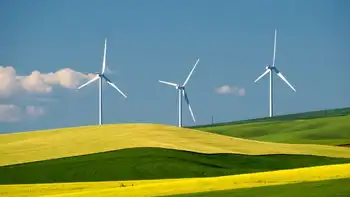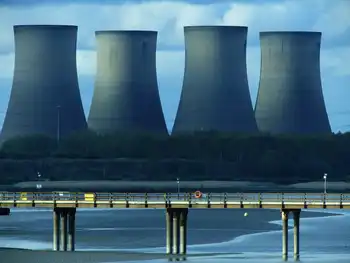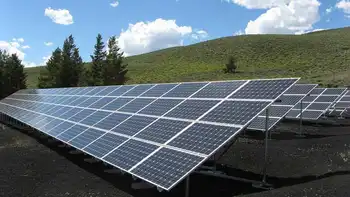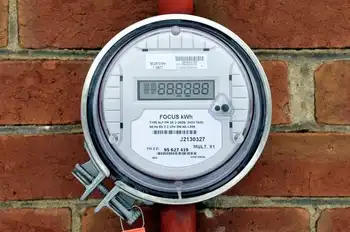Kansas coal plant targeted by Earthjustice
By Wichita Eagle
NFPA 70b Training - Electrical Maintenance
Our customized live online or in‑person group training can be delivered to your staff at your location.

- Live Online
- 12 hours Instructor-led
- Group Training Available
Attorneys for Earthjustice sent a letter to Karl Brooks, the EPA's regional administrator, saying that an air-quality permit issued in December by the state to Sunflower Electric Power Corp. doesn't comply with federal clean air laws. Sunflower, based in Hays, wants to build the new plant outside Holcomb, in Finney County.
Earthjustice, protesting the permit on behalf of the Sierra Club, told Brooks that he must act under the federal Clean Air Act to order the Kansas Department of Health and Environment to revise the permit. And, the group said, if state officials won't, the EPA must block the plant's construction.
"The Clean Air Act has been violated, and the EPA has an obligation to act," said Sierra Club spokeswoman Stephanie Cole. "In this case, too, the EPA knows there are serious deficiencies with the permit, and we expect them to address those deficiencies."
The Sierra Club also is pursuing a legal challenge to the permit. In January, it asked the Kansas Court of Appeals to overturn the permit, but the state Supreme Court stepped in last month and took the case, which is not unusual when any outcome is likely to be appealed to it anyway.
Brooks' office already has concluded that the Kansas permit doesn't impose strict enough limits on the potential air pollution from Sunflower's $2.8 billion project. Brooks told KDHE Secretary Robert Moser in a letter last month that he wanted a "dialogue" about issues with the permit.
The EPA has said the state permit's limits on emissions of nitrogen oxides and sulfur dioxide are too lax. The federal agency wants Kansas to impose per-hour limits on the two pollutants, rather than 30-day averages.
EPA officials have said short-term exposure to the two pollutants can cause people to have difficulty breathing and increase symptoms of asthma, resulting in more hospital visits and respiratory illnesses.
Moser responded to the EPA's letter from last month, saying the department would use "all available means" to comply with per-hour pollution standards but is waiting for "final guidance" from federal officials so that such standards are applied uniformly.
The permit was issued by Moser's predecessor, Acting Secretary John Mitchell, who remains director of the department's Division of Environment.
But Moser told Brooks in a letter: "I stand by the decision to issue the Sunflower permit, firmly believing it complies with all applicable state and federal air quality requirements."
David Bryan, a spokesman for the regional EPA office, said some of the issues raised by the environmentalists echo concerns outlined Brooks in his letter to Moser last month.
But environmentalists also question whether Sunflower is proposing to use the best-available technology to control pollution from its new plant, as required by federal law.
"The EPA must either require KDHE to issue an amended permit, including new emissions limitations following a new public comment period, or EPA must take action to prevent the construction of this unlawful facility," the Earthjustice letter said.
Sunflower spokeswoman Cindy Hertel said the company believes KDHE did "a thorough and complete job" in considering the utility's permit application.
"We are confident the permit will be upheld as compliant with all environmental laws," she said.
Caleb Stegall — who is general counsel for both KDHE and Gov. Sam Brownback — agreed, saying, "We look forward to defending it before the Kansas Supreme Court."
Sunflower supplies power for about 400,000 Kansans and plans to build a plant with a capacity of 895 megawatts, enough to meet the peak demands of 448,000 households, according to one state estimate. Three-quarters of the new capacity, or 695 megawatts, would be reserved for a Sunflower partner, Tri-State Generation and Transmission Association Inc., of Westminster, Colorado.
That's long been a sore point for many critics of Sunflower's push to add coal-fired generating capacity, but the utility's supporters say exporting electricity is as beneficial as exporting beef, wheat and other agricultural commodities.
Sunflower's plans for the new plant are in keeping with an agreement in April 2009 between Sunflower and then-Democratic Gov. Mark Parkinson.
Sunflower had wanted to build two new coal-fired plants outside Holcomb, but saw that project blocked by KDHE under Parkinson's predecessor, Democratic Gov. Kathleen Sebelius. Legislators who supported the project in turn had stymied "green" policies favored by Parkinson and Sebelius.
Parkinson left office in January and was followed Brownback, a Republican and a strong supporter of Sunflower's project.
"They can start construction," Cole said of Sunflower. "That's where we expect EPA to step in."











